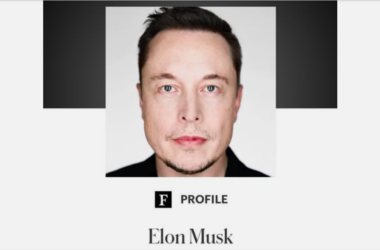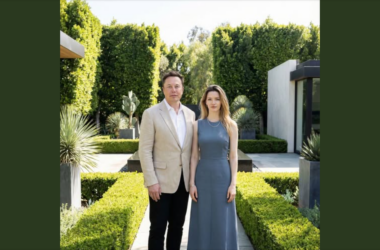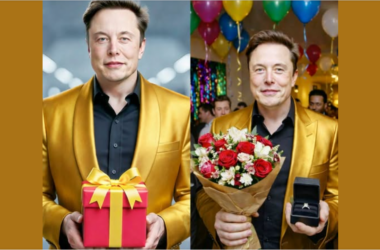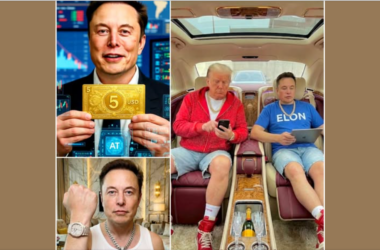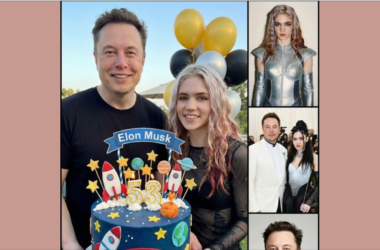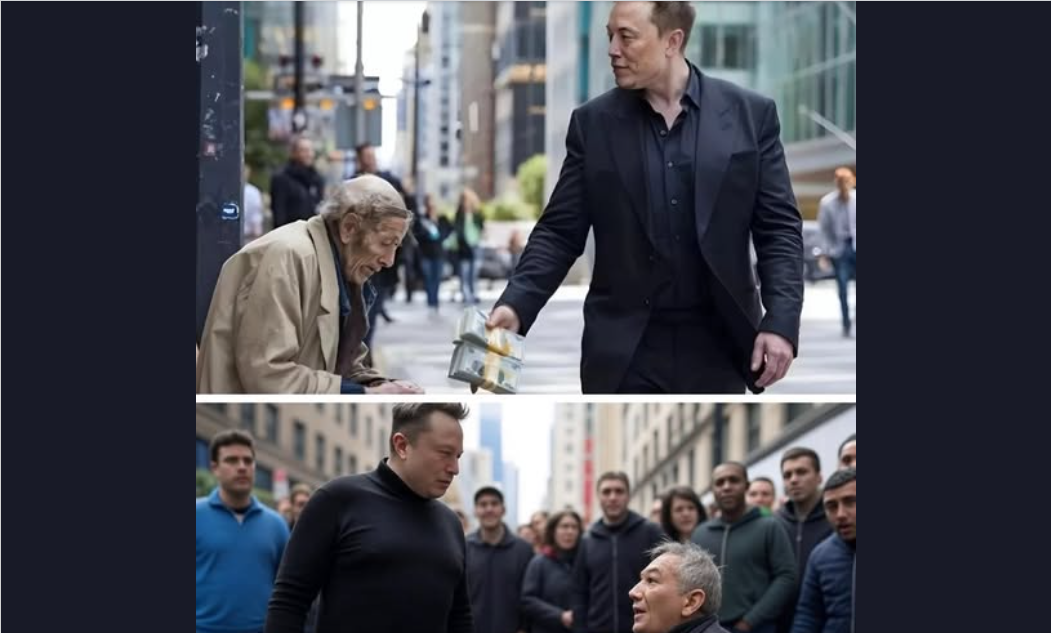
In a story that has taken social media by storm, tech billionaire Elon Musk reportedly made a staggering $2,000,000 wager with a homeless man in a bold and unconventional challenge that has left the world stunned. The event, described as a mix of philanthropy, social experiment, and Musk’s signature audacity, unfolded on the streets of Los Angeles, where Musk encountered a beggar and proposed an extraordinary deal. While the details remain unverified by official sources, the narrative has sparked widespread discussion about wealth, opportunity, and the unpredictable nature of Musk’s public persona. This article explores the reported incident, its implications, and the broader context of Musk’s unconventional approach to engaging with society.
The Encounter: A Chance Meeting Turns Extraordinary
According to accounts circulating on platforms like X and various tech blogs, the incident occurred when Musk, driving through downtown Los Angeles in his Tesla Cybertruck, noticed a homeless man holding a sign that read, “Will Work for Food.” Intrigued by the man’s demeanor, Musk reportedly pulled over and struck up a conversation. The man, identified only as James, a 42-year-old former construction worker who had fallen on hard times, shared his story of losing his job and home during the economic fallout of the pandemic.
What followed was quintessential Musk: a bold, impulsive proposition. Musk allegedly offered James a $2,000,000 challenge: if James could complete a series of tasks designed to test his resourcefulness and determination, the money would be his to start a new life. The tasks, as described in viral posts, included creating a business plan for a small startup, securing a meeting with a local entrepreneur, and using $1,000 in seed money provided by Musk to generate a profit within a week. The catch? James had to do it all while navigating the challenges of homelessness, with no additional resources beyond Musk’s initial $1,000.
James, initially skeptical but desperate for a chance to change his circumstances, accepted the challenge. What ensued was a week-long journey that captivated onlookers and sparked heated debates about wealth inequality, opportunity, and the ethics of such a public stunt.
The Challenge: A Test of Grit and Ingenuity
The tasks Musk set for James were deliberately demanding, designed to mirror the entrepreneurial hustle that Musk himself credits for his success. The first task required James to draft a business plan for a viable small business. With no access to a computer or formal education in business, James turned to a local library, where he used free Wi-Fi and public computers to research and write a plan for a mobile coffee cart targeting busy downtown workers. Volunteers at the library, moved by his determination, helped him refine the document, which outlined a low-cost, scalable model.
The second task—securing a meeting with a local entrepreneur—proved more challenging. James, relying on his charisma and the $1,000 seed money, purchased a cheap suit from a thrift store and cold-called local business owners. After numerous rejections, he secured a meeting with a café owner who was impressed by his persistence and the clarity of his business plan. The meeting not only fulfilled the task but also led to a tentative partnership offer, contingent on James securing funding.
The final task was the most daunting: turning the $1,000 into a profit within a week. James invested in coffee supplies, a second-hand cart, and basic marketing materials, setting up near a busy intersection. Leveraging his knowledge of the area and connections made during the challenge, he attracted customers with low prices and a compelling story. By the end of the week, James had generated $1,800 in revenue, netting a modest profit after expenses.
The Outcome: A Life-Changing Moment
On the seventh day, Musk reportedly returned to meet James at his coffee cart. Surrounded by a small crowd of onlookers and media, James presented his results: a polished business plan, a confirmed meeting with an entrepreneur, and a profit of $800. Impressed by James’s resourcefulness, Musk declared him the winner of the $2,000,000 challenge. In a dramatic flourish, Musk handed over a check, reportedly saying, “You’ve proven you’ve got what it takes. Now go build something bigger.”
The story, as shared on X, didn’t end with the check. Musk allegedly offered James mentorship and connected him with Tesla’s community outreach team to help him establish his business. James, now with the means to secure housing and invest in his coffee cart venture, became an overnight symbol of resilience and the power of opportunity.
Public Reaction: Inspiration or Exploitation?
The story has elicited polarized responses. Supporters on X hailed Musk as a visionary who uses his wealth to inspire and uplift, with one user posting, “This is why Elon is different—he doesn’t just give handouts; he challenges people to rise up.” Others saw the stunt as exploitative, arguing that it turned a vulnerable person’s struggle into a spectacle for Musk’s amusement. Critics pointed out the ethical concerns of placing such high stakes on a homeless individual, with one X post stating, “$2M is pocket change for Musk, but he made this guy jump through hoops for it. Feels more like a game than generosity.”
The incident also reignited debates about wealth inequality. Musk, the world’s richest person with a net worth exceeding $400 billion, has faced criticism for his massive wealth amid growing economic disparities. While some view the challenge as a creative way to empower an individual, others argue it highlights the systemic barriers that prevent most people from accessing such opportunities without a billionaire’s intervention.
Context: Musk’s History of Bold Experiments
The $2,000,000 challenge aligns with Musk’s history of unconventional experiments. In 2016, Musk revealed he once lived on $1 a day as a teenager to test his entrepreneurial resilience, an experience he described as proving he could survive on minimal resources. More recently, Musk’s America PAC offered $1 million daily giveaways to registered voters in swing states who signed a petition supporting free speech and gun rights, a move that sparked legal scrutiny for potentially violating election laws. These actions reflect Musk’s penchant for using his wealth and influence to test ideas, provoke discussion, and challenge societal norms.
The beggar challenge also echoes Musk’s public persona as a risk-taker who values grit and ingenuity. His companies—Tesla, SpaceX, and xAI—are built on the premise that bold ideas and relentless effort can overcome seemingly insurmountable obstacles. By framing the challenge as a test of entrepreneurial spirit, Musk positioned James’s success as a microcosm of his own philosophy.
Fact-Checking the Narrative
While the story has gone viral, its authenticity remains unverified. No official statement from Musk or Tesla has confirmed the event, and some reports suggest it may have originated from exaggerated social media posts or fabricated accounts, similar to past Musk-related hoaxes like cryptocurrency giveaway scams. However, the plausibility of the story is bolstered by Musk’s documented behavior, such as his direct engagement with customers and employees, as seen in his alleged undercover dealership visit where he overheard a salesman’s critical remark.
The lack of concrete evidence has not dampened public fascination. The story’s rapid spread on X and tech blogs reflects Musk’s ability to dominate headlines, whether through genuine actions or viral myths. If true, the challenge would align with Musk’s pattern of using his platform to inspire and provoke, as seen in his $1 million voter giveaways.
Implications for Musk and Society
The incident, if real, raises important questions about wealth, power, and social responsibility. For Musk, it reinforces his image as a polarizing figure—part philanthropist, part showman—who uses his resources to challenge conventions. The $2,000,000 wager, while life-changing for James, represents a fraction of Musk’s wealth, highlighting the vast disparity between the billionaire class and those struggling to survive.
For society, the story underscores the transformative potential of opportunity. James’s success, driven by resourcefulness and community support, demonstrates that talent and determination exist across all socioeconomic strata. However, it also highlights the rarity of such opportunities, as most homeless individuals lack access to a billionaire benefactor or the resources to navigate such a challenge.
The incident may also prompt Musk to formalize similar initiatives. A structured program offering micro-grants and mentorship to disadvantaged individuals could amplify the impact of his wealth while addressing criticisms of exploitation. Such a program could align with Tesla’s community outreach efforts or xAI’s mission to advance human potential.
Conclusion
Elon Musk’s reported $2,000,000 challenge to a beggar is a story that blends inspiration, controversy, and the larger-than-life persona of one of the world’s most influential figures. Whether fact or fiction, it has sparked a global conversation about wealth, opportunity, and the ethics of high-stakes philanthropy. For James, the alleged recipient, the challenge offered a path out of homelessness and a chance to rebuild his life. For Musk, it reinforces his reputation as a visionary who pushes boundaries, even at the risk of controversy.
As the story continues to circulate, it serves as a reminder of the power of individual action in a world of systemic challenges. While Musk’s wealth makes such gestures possible, the true lesson may lie in the resilience of those like James, who seize opportunity against all odds. Until official confirmation emerges, the $2,000,000 challenge remains a compelling tale of hope, hustle, and the unpredictable nature of Elon Musk’s influence.
